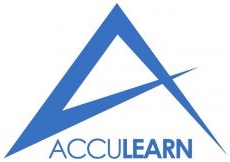Introduction
Maintenance & Reliability Best Practices are critical for every successful individual and company. The first module of this workshop delivers many practical and new Maintenance and Reliability Best Practices concepts and tools. You will discuss these concepts and practice using practical tools in case studies and discussion groups. The second module then helps you decide in a rational way which activities are best done with internal resources and which are best outsourced. Tools and techniques are introduced which will help you ensure that outsourcing contracts are comprehensive and avoid the common pitfalls.
The costs associated with equipment downtime and reduced production can be significant. Learning how to effectively manage all aspects of your industrial facility is a must – so is this ten – day course.
The focuses of this course are highlighted as follows:
- Understanding Outsourcing methodologies
- Contracting types, including Service Level Agreements
- Risk Based Maintenance to ground maintenance contracts
- Dashboards and real-time performance monitoring and Key Performance Indicators to monitor performance
- Continuous improvement and performance management: how to evaluate the performance with all parties involved
The course is split into two modules:
MODULE I – Maintenance & Reliability Best Practices
MODULE II – Maintenance Contracting & Outsourcing
Each module is structured and can be taken as a stand-alone course; however, delegates will maximise their benefits by taking Module 1 and 2 back-to-back as a two-week course.
Objectives
By the end of this course delegates will be able to:
- Evaluate and justify your maintenance programs using Value = Benefit – Cost
- Apply Life Cycle cost and risk planning to your facility assets
- Target Maintainability and/or Reliability in the development of your facility maintenance plans
- Learn the PLAN, DO, REVIEW cycle of continuous improvement
- Understand how to decide rationally what maintenance activities to outsource and what is not
- Learn the features, functions and benefits of lean maintenance contracts
- Understand the different types of maintenance contracts (incl. Service Level Agreements) and when/how to apply them
- Learn how to define service levels and monitor the contractor performance
- Learn how to develop and negotiate a maintenance contract
- Understand how to evaluate the delivered performance of all parties involved
- Learn how to implement maintenance contract management
The Contents
Day 1 – Asset Cost Management Introduction
- Definitions of reliability, maintenance & asset management
- The total cost of maintenance
- Best practice reliability and maintenance processes
- Elements of asset management best practice
- Auditing performance
- Overview of TPM, RCM, BCM, QCM, and other asset management buzzword
- Open discussion sessions
Day 2 – Laying the Groundwork
- Team-work maintenance, operations, stores
- The importance of standards such as PAS 55, JA1011
- Corporate asset management expectations
- Asset performance expectations
- The forms of asset failure and degradation
- The causes and nature of asset failure and degradation
- The effects, cost and risks of asset degradation
- Practical Application and Open Discussion sessions
Day 3 – Applying the Value based Process
- Breaking the cycle of failure and degradation
- Select PM tactics on the basis of costs and risks
- How to determine PM intervals
- Condition based maintenance types and the PF-curve
- The four important reliability functions
- Implementing best practice maintenance programs
- Optimising spares to support the maintenance program
- Maintenance program cost and risk based justification
- Practical Application and Open Discussion Sessions
Day 4 – Ensuring the Continuity of the Value-based Process
- Complete the PLAN, DO, REVIEW Improvement cycle with FRACAS
- Failure Reporting, Analysis and Corrective Action System requirements
- Structure and code data collection to support reliability analysis
- How to quantify chronic failures and losses
- Use Pareto analysis and stratification to focus the value-based analysis
- Quantify losses in life cycle terms
- Hypothesise root causes of failure and verify on the basis of evidence
- Reliability Analysis Case Study
- Discussion of software and templates to support analysis
Day 5 – Supporting Process that Lower Life-cycle costs
- Planning and scheduling best practice
- Cost effective man-power and skills deployment
- Performance indicators to drive continuous improvement
- Overall review of concepts learned
Day 6 – Outsourcing Considerations
- Introduction to program
- Introduction delegates
- Asset management
- The business impact of maintenance
- Considerations in outsourcing maintenance – what to outsource and what not?
- Activity on asset matrix
- Risks involved
- Case study: Outsourcing maintenance activities
Day 7 – Maintenance Contracts
- Maintenance contract types
- Parties involved
- The tendering process – modern ways of tendering
- Choosing the right contractor
- Costing the service
- Defining Key Performance Indicators to monitor the performance of all parties involved
- Use of Balanced Scorecard with performance contracts
- Interactive exercise and examples
Day 8 – Developing the Maintenance Contract
- Vendor management
- The contracting cycle
- Assemble a team
- Assess, determine and specify the required service levels
- Writing the contract – contents of a maintenance contract
- Interactive exercise: review some existing contracts
- Implementing contract management – how to make it work (performance management)
- Periodic evaluation & improvement
Day 9 – Grounding and Negotiating the Contract
- Expectations about availability, reliability and costs
- The extensive preventive maintenance schedule – “tricks” of maintenance contractors
- The seven steps to develop a risk based maintenance concept
- Using the maintenance concept to negotiate more effectively lean maintenance contracts
- Negotiating the contract – negotiation ploys
- Negotiating the contract – negotiation tactics
- Negotiating tips
- Interactive exercise and role play regarding negotiating
Day 10 – Final Workshop
- Development of a maintenance contract in groups
- Defining the requirements and service levels
- Develop the offer
- Selection criteria
- Presenting the bid
- Closing the contract
- Evaluation of results
- Wrap-up



